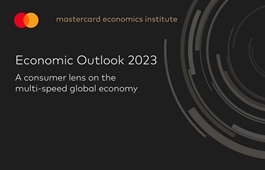High-risk sectors to face strict credit restrictions
High-risk sectors to face strict credit restrictions
The State Bank of Vietnam is requiring credit institutions and foreign bank branches to execute credit and interest rate policies properly, as per a new document.

The State Bank (SBV) is demanding credit institutions to include a variety of specific content for key areas in Document No. 9064/NHNN-TD, such as proactively adjusting capital sources to meet credit capital needs for the economy, minimising term risks, granting credit to business), loans for housing demand, residential real estate projects about to be completed, and the ability to repay loans.
Simultaneously, the bank requires tight control of credit risk for investments in corporate bonds, particularly in risky sectors such as investment, securities trading, and real estate, in which the density of credit is governed by several customers, large customer groups, large-scale projects, and high-end segments.
By November's end, loan growth reached 12.2 per cent. According to the credit growth goal allocation of 14 per cent, there will be around 3.8 per cent of available credit, plus an increase of roughly 2 per cent. This is a sizable space for commercial banks to finance enterprises and the economy, but in reality, credit sources are restricted to priority sectors, and not all firms can fulfil the present requirements.
The Ho Chi Minh City Real Estate Association (HoREA) has recently submitted a petition to let purchasers of commercial properties with values below $76,000 be supported with a 2 per cent credit interest rate of the over $1.7 billion support package or with a suitable interest rate controlled by SBV.
The support term begins on the loan disbursement date and ends when the client pays up loan principal and interest, but no later than December 31, 2023.
According to Le Hoang Chau, chairman of the HoREA, the association's proposal stems from the fact that numerous investors in commercial housing projects are implementing a policy of reducing house prices. With a discount of approximately 50 per cent, the selling price of apartments in some projects is as low as $85,000 per unit. Despite the dramatic price fall, commercial homebuyers have still not been able to get a mortgage with a fair interest rate.
In addition, decree 31/2022/ND-CP stipulates that the state budget is the sole source of interest rates for loans to companies, cooperatives, and business families.
"At present, the credit package is about $1.7 billion to support a 2 per cent per year decrease in loan interest rates per Decree 31/2022/ND-CP. However, by the end of October 2022, around $888 million, or 52.5 per cent, will have been released. If it is not used, it will squander state budget support funds," Chau said.
According to financial experts, if the 2 per cent interest rate is maintained, it will be highly advantageous for low-income individuals to borrow money to purchase a home since present rates are too expensive. However, many are worried about real estate speculation because many individuals with idle funds may rush to purchase homes with the planned discounts and incentives. Only individuals without a house qualify for the advantageous interest rate.
Dr. Nguyen Quoc Hung, general secretary of the Vietnam Banks Association, determined that the recent 1.5–2 per cent increase in credit room was consistent with the situation on the ground but was limited to lending to individuals directly engaged in manufacturing and business, which are considered priority sectors. Regarding the risk industry, access to credit financing will be challenging.
According to Hung, this will also be a priority of SBV's inspection and assessment of units awarded credit room privileges. Therefore, It is doubtful that loan money will flow into riskier regions soon. In addition to the SBV's oversight, commercial banks and organisations will constantly be monitoring to oversee and reduce bad loans.






















